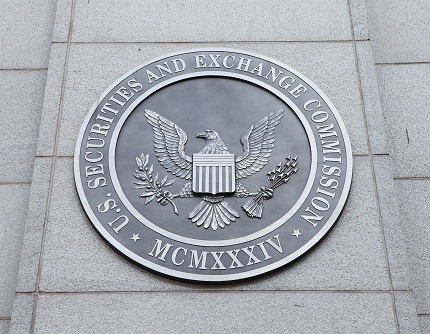 The AGs from seven states and the District of Columbia filed suit in the Southern District of New York challenging the SEC’s Reg BI for allegedly “failing to meet basic investor protections that were laid out in the historic 2010 Dodd-Frank Act.”
The AGs from seven states and the District of Columbia filed suit in the Southern District of New York challenging the SEC’s Reg BI for allegedly “failing to meet basic investor protections that were laid out in the historic 2010 Dodd-Frank Act.”
“With this rule, the SEC is choosing Wall Street over Main Street. Instead of adopting the investor protections of Dodd-Frank, this watered-down rule puts brokers first,” New York Attorney General Letitia James said in a statement.
The SEC approved a new “best interest” standard of conduct for broker-dealers – the Reg BI – on June 5, along with a new Form CRS Relationship Summary and two separate interpretations under the Investment Advisers Act.
However, the ink of the proposal wasn’t dry before criticism of the package was voiced by many of the same parties that had been supportive of the Labor Department’s fiduciary rule proposal that was subsequently vacated by the Fifth Circuit.
Exceeded Authority
Ironically, just as the onslaught of suits challenging the Labor Department’s fiduciary rule once argued that the agency had overstepped its regulatory authority in promulgating the “conflict of interest” rule, this new suit essentially argues that the SEC rulemaking exceeded its authority in not following Congress’ express direction as embodied in Section 913 of the Dodd-Frank Act, which called for a commission to conduct a study regarding gaps or deficiencies in the regulation of broker-dealers and investment advisers and authorized the creation of rules aligning the standard of conduct for them.
In general, the suit filed Sept. 9 by the AGs from California, Connecticut, Delaware, Maine, New Mexico, New York, Oregon and the District of Columbia contends that the SEC’s rule did not adequately address what they saw as the increasingly “blurred roles” between broker-dealers and investment advisers, nor, in their assessment, did it address the confusion that many retail investors “mistakenly believe” that broker-dealers must place investors’ interests first.
The AGs allege that, as a result, the SEC’s Reg BI undermines the current consumer protections for retail investors, increases confusion about the standards of conduct and ultimately makes it easier for brokers to market themselves as advisers.
Among other things, the AGs argue that although the SEC is claiming that Reg BI ends the confusion in the industry, the regulation fails to heed Congress’ call to action in several different ways. It notes, for example, that the SEC’s principal cited authority for promulgating the final rule is Section 913(f), but that provision, they argue, does not provide authority for the agency to promulgate the standard of conduct in the final rule in disregard of Section 913(g).
Moreover, they contend that the final rule fails to meaningfully elevate broker-dealer standards beyond their existing suitability requirements and point to earlier recommendations by SEC staff suggesting that the SEC should adopt a uniform fiduciary standard. Reg BI is also likely to “produce continued investor and industry confusion” because it relies on a “vague best interest standard” and leaves key terms undefined, the AGs assert.
Standing Still
As for their arguments for standing in the case, the AGs contend that the SEC’s disregard for Congress’s directives in the Dodd-Frank Act vis-à-vis the Reg BI will:
- cause the states to lose revenue from the taxable portions of distributions from their residents’ investment and retirement accounts that are worth less because of expensive conflicts of interest in investment advice;
- force them to bear a greater financial burden to assist retirees and others whose savings are insufficient to meet their needs due to conflicted investment advice; and
- harm their quasi-sovereign interest in protecting the economic well-being of their residents.
Additional Challenges?
Interestingly, Massachusetts Secretary of the Commonwealth William Galvin, who has been a frequent critic of the SEC’s rule and has gone so far as to issue a proposed regulation in response, was not a party to the suit. In addition to Massachusetts, New Jersey and Nevada have also pushed forward with their own fiduciary rulemaking.
Meanwhile, the U.S. House of Representatives, led by the Chair of the House Financial Services Committee Rep. Maxine Waters (D-CA), approved legislation in June that would block the Reg BI from taking effect. That provision was approved as part of the annual Financial Services and General Government Appropriations Act (H.R. 3351) to fund the SEC and a broad range of government agencies for the 2020 fiscal year. A companion provision is unlikely to be approved by the Senate, but may come up later this year during congressional budget negotiations as a bargaining chip.

